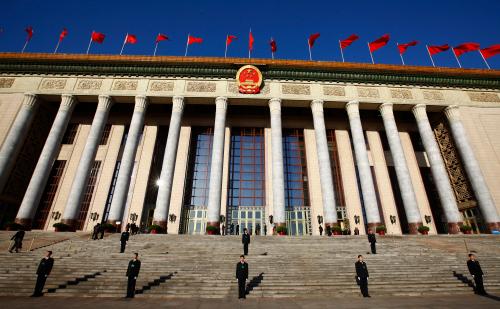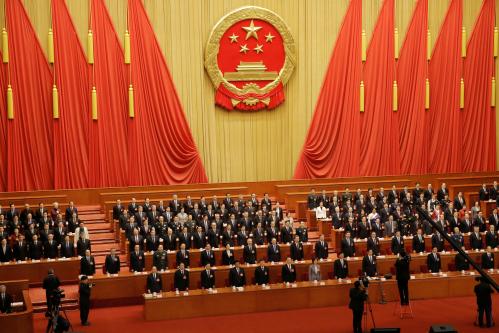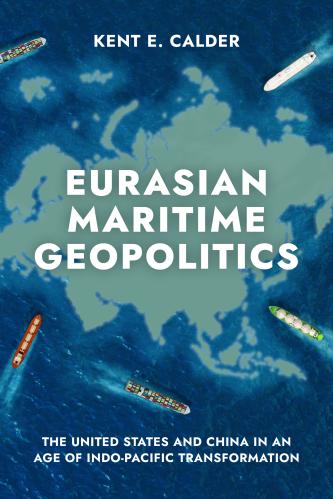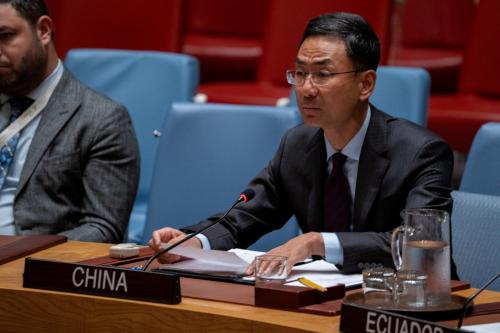The People’s Republic of China continues to modernize the Chinese regulatory state through its open government project, even as the Chinese Communist Party (CCP) asserts comprehensive leadership and tightens political and social controls under General Secretary Xi Jinping, writes Jamie Horsley. This originally appeared on China Business Review.
The People’s Republic of China continues to modernize the Chinese regulatory state through its open government project, even as the Chinese Communist Party (CCP) asserts comprehensive leadership and tightens political and social controls under General Secretary Xi Jinping. The CCP views open governance systems of government information disclosure, regulated public participation, and government accountability as essential for achieving law-based governance, supporting economic and social development, stimulating social innovation and market vitality, addressing social concerns, and enhancing credibility of the party-state. These open government mechanisms also afford the US business community opportunities to better understand and impact the Chinese regulatory environment.
Continued support for government information disclosure
In 2002, Guangzhou Municipality adopted the first Chinese rules mandating the disclosure of information held by government agencies both proactively and on request. Since then, the Chinese party-state has steadily expanded government transparency through policy statements and government legislation. The centerpiece of this initiative is the Open Government Information (OGI) Regulations, China’s freedom-of-information statute. It applies nationwide from the center down to the township level of government, and gave the Chinese public, for the first time, the right to request records from government files and sue the government if they were dissatisfied.
Since the original OGI Regulations took effect in May 2008, the CCP and State Council have continuously pressed to improve disclosure of government-held records that are relevant both to economic development as well as people’s daily lives. As a result, access to popularly requested information on such matters as government budgets and expenditures; environmental pollution; food and drug safety; land takings and compensation; procurement and construction contracts; law enforcement; and government decisions to impose fines, license revocations, and other penalties has also gradually expanded. Statistics indicate the Chinese government had proactively published nearly 72 million records and received some 3.8 million disclosure requests by the end of 2018. One analysis of OGI litigation against the government found that plaintiff requesters prevailed in whole or in part in over one-third of 5,000 decisions analyzed. Although many of those victories simply ordered the government to issue or reconsider its response, they were significant in the Chinese context because the courts were willing to rule against the government, a phenomenon that is becoming more commonplace.
A 2019 revision of the OGI Regulations strengthens transparency by codifying the presumption of disclosure, which means that disclosure is the norm, non-disclosure the exception. The revision also eliminates the controversial “needs test” for requesting information; discards the possibility of sanctions for officials who release information that “should not be disclosed;” and provides greater clarity regarding which types of information may be withheld from disclosure by adding internationally-recognized exemptions for internal administrative, deliberative or “in-progress,” and law enforcement information.
The revision also clarifies a number of procedures. One of particular relevance to companies is what happens when someone requests information about a company. In such a case, the OGI Regulations require agencies to notify the company and ask if it objects to the requested disclosure. If the company provides reasonable objections, the agency should normally deny the disclosure request. If the company fails to respond within 15 business days, the agency will determine itself whether to satisfy the request. When deciding in both scenarios whether to disclose the requested commercial information, the agency must balance potential injury to the company from disclosure against the (undefined) public interest. If the agency decides to disclose, it must notify the company.
Companies, in turn, have the right to sue an agency that discloses information they believe divulges their commercial secrets and also to sue for non-disclosure of information that has not yet been released, on grounds that disclosure could cause irremediable injury and suspending disclosure would not injure the public interest. However, the OGI Regulations do not explicitly require agencies to provide a reasonable period of time for the company to seek to prevent disclosure after an agency has notified its decision to disclose, as is available under the US Freedom of Information Act (FOIA). Nonetheless, since litigation under the OGI Regulations is becoming more robust, and the Chinese government has been strengthening commercial secrets protection, the future development of a US-style “reverse FOIA” procedure would seem possible.
The OGI Regulations have also helped promote greater information disclosure in other sectors, including judicial, corporate, charitable, and certain CCP matters, as well as greater transparency concerning the legislative process.
Institutionalizing public input to government rulemaking and decision making
Revision of China’s Legislation Law in March 2015 institutionalized notice-and-comment lawmaking by the National People’s Congress (NPC) and its Standing Committee. The Law now requires publication of draft laws, together with a legislative explanation, at least once in most cases for a comment period that usually lasts at least 30 days. It also requires additional participation opportunities at various stages for outside experts, academics, and the general public.
The State Council adopted similar arrangements for government rulemaking through two nationwide Rulemaking Regulations that establish 30-day notice-and-comment and other public participation procedures for the formulation of State Council regulations and of central government departmental and local government rules. In line with China’s Legislation Law, many draft laws are published twice, as was the case with adoption of the Foreign Investment Law, yet the State Council, central government agencies, and local governments rarely publish drafts more than once. While the Rulemaking Regulations generally require another 30-day comment period if a draft rule is revised and issued again for public comment by the agency’s legal affairs office, second rounds in practice may afford a shorter comment period, as with the 20-day period provided for recent revised draft measures on advertising drugs, medical devices, and dietary supplements.
The State Council also took steps in the last year to constrain government agency overuse of regulatory documents, which are not considered “legislation” but often impact rights and obligations. Such “red-lettered” documents, so called due to the letterhead on which they are issued, must now go through procedures similar to those for rulemaking, including a notice-and-comment procedure if they involve the public’s “vital interests” or have a “major” impact on their rights and interests. However, the State Council did not stipulate a minimum comment period. For example, the National Development and Reform Commission recently published draft guidance on incentives for individual role models in the evolving social credit system with only a 15-day period for submitting comments. However, unlike laws, regulations and rules, which can only be challenged formally through an NPC Standing Committee or governmental review process, regulatory documents can be challenged in court under China’s Administrative Litigation Law when they serve as the basis for a contested government action.
The State Council also recently issued Interim Regulations on Major Administrative Decision-making Procedures, to take effect September 1, 2019. Adopted after 15 years of local experimentation to better constrain this broad area of basically unregulated government action, the Decision-making Regulations establish five procedures for “scientific, democratic and law-based” government decisions on major policies, plans, and construction projects: public participation, expert assessment, risk analysis, legality review, and collective deliberation and decision. Public participation may take various forms, including publicly seeking opinions and public hearings on matters directly involving the public’s “vital interests” or eliciting major differences of opinion. When decisions will impact the interests of a particular group, the decision-making agency should communicate with and solicit opinions from the relevant groups. The public should also be invited to participate in post-decision assessments for major policies and projects.
State Council Regulations on Government Investment issued in May similarly stipulate that government investment in fixed assets and construction projects must be open and transparent, and based on procedures including public participation, expert review, and risk assessment for projects having a major impact on economic and social development or the public interest, or of a relatively large investment scale. While neither the Decision-making nor the Government Investment Regulations mandate detailed procedures that might be enforceable by the public, they represent a major step toward improved regulation of and accountability with respect to government actions that significantly impact the public interest.
Calls for enhanced business consultation
The State Council has also underlined the importance of obtaining business community input, directing central government and provincial agencies to consult with private and other enterprises, chambers of commerce, and industry and lawyers associations when formulating relevant administrative regulations, rules and regulatory documents. The State Council 2019 rulemaking agenda similarly calls for improving “scientific, democratic, and law-based” rulemaking through fully considering the opinions of production and operating enterprises, chambers of commerce, and industry associations. Relatedly, State Council 2019 priorities for open government work require establishing mechanisms for entrepreneurs to participate in enterprise-related policy formulation, as well as actively seeking advice on major decision-making from representative companies and industry and lawyers associations.
The Foreign Investment Law likewise emphasizes foreign-invested enterprise (FIE) participation in the regulatory process. It calls for soliciting opinions and recommendations from FIEs on relevant laws, regulations and rules; provides the State will guarantee that FIEs participate equally in the formulation of standards, a process for which no detailed requirements have yet been published; and stipulates that regulatory documents impacting foreign investment must not impair the lawful rights and interests of FIEs or increase their obligations, set market access or exit conditions, or interfere with the normal business activities of FIEs, without a basis in law. While that Law is silent on the question of FIE participation in drafting regulatory documents, it does require that regulatory documents and adjudicatory decisions relating to foreign investment be published promptly.
The foreign business community criticized the drafting process for the Foreign Investment Law adopted in March, which provided an unusually long comment period of 61 days but was accelerated due to slowing investment and US-China trade tensions. While Chinese authorities did adjust certain legal provisions in line with submitted comments, the procedure and final text failed to satisfy business concerns. With attention now turned to the Law’s required implementing regulations, Chinese authorities have an opportunity to show they are serious about affording new and effective mechanisms for consulting the business community. One improvement advocated by the foreign business community and encouraged in State Council policy documents would be to include a feedback mechanism to ensure and explain how major comments are considered and bring further legitimacy to China’s regulatory process.
* * *
Several documents emphasize the CCP’s leadership throughout the legislative and decision-making process. The CCP is making more explicit its traditional core role in setting the agenda for and approving significant matters, while more strictly limiting the space for unauthorized civic action. And its political decision-making, including on foreign affairs, remains cloaked in secrecy. Nonetheless, the party-state continues to bolster channels for “orderly” public participation that provide greater opportunities for the business community and Chinese society as a whole to know about and impact legislation and regulatory decision-making in Xi’s “New Era.”
The Brookings Institution is committed to quality, independence, and impact.
We are supported by a diverse array of funders. In line with our values and policies, each Brookings publication represents the sole views of its author(s).










Commentary
Op-edOpen government developments in China: Implications for US businesses
July 1, 2019